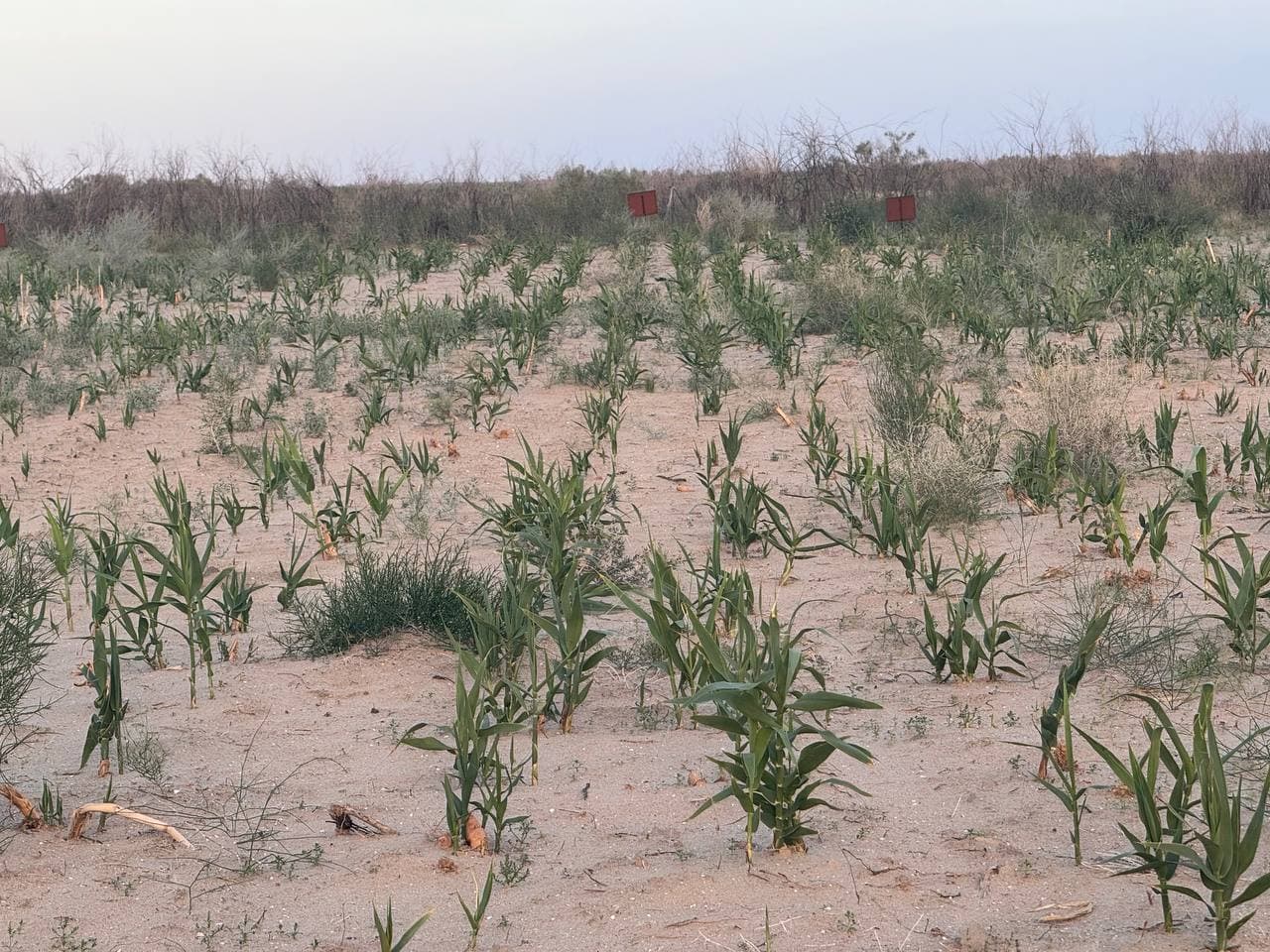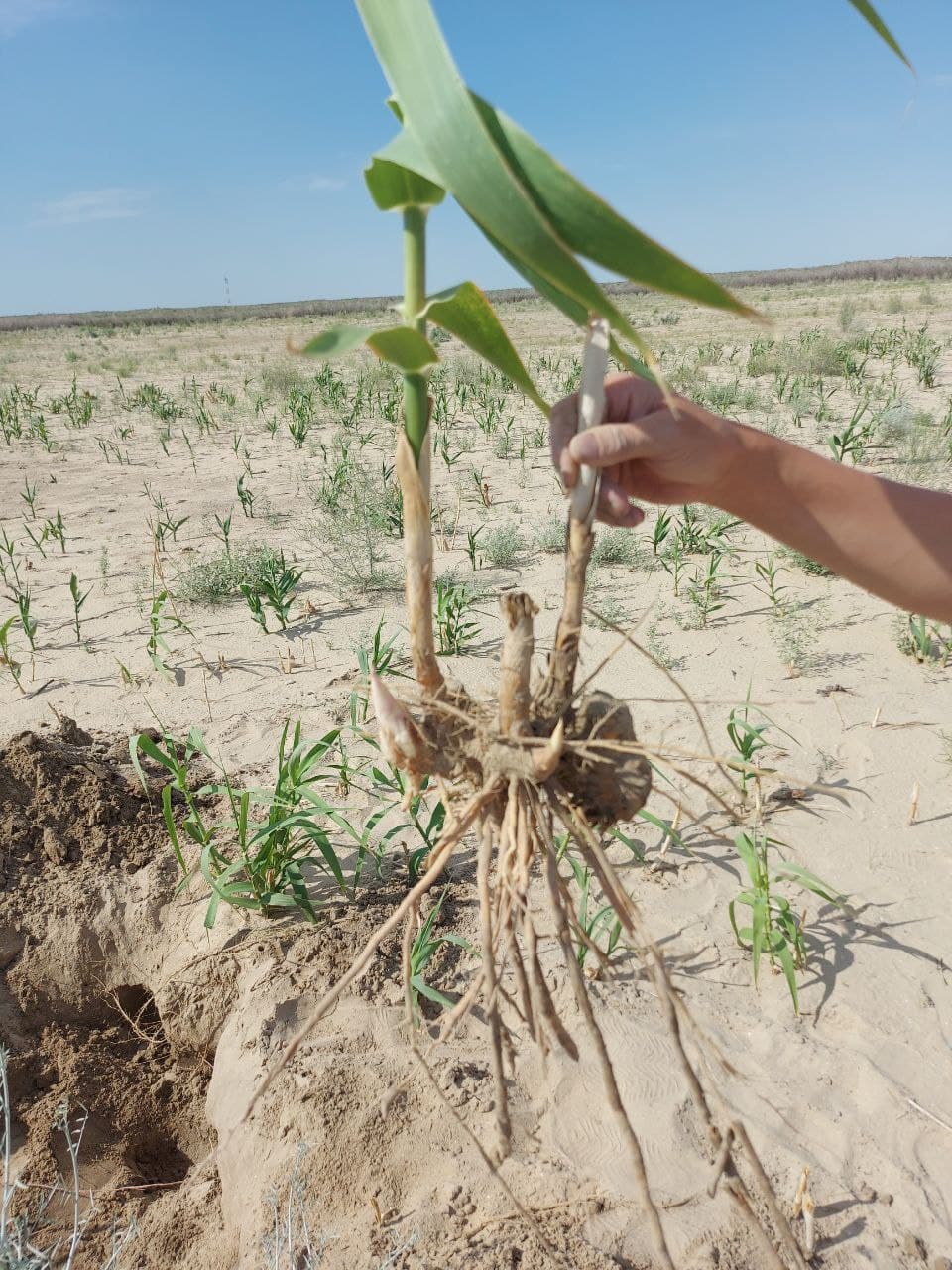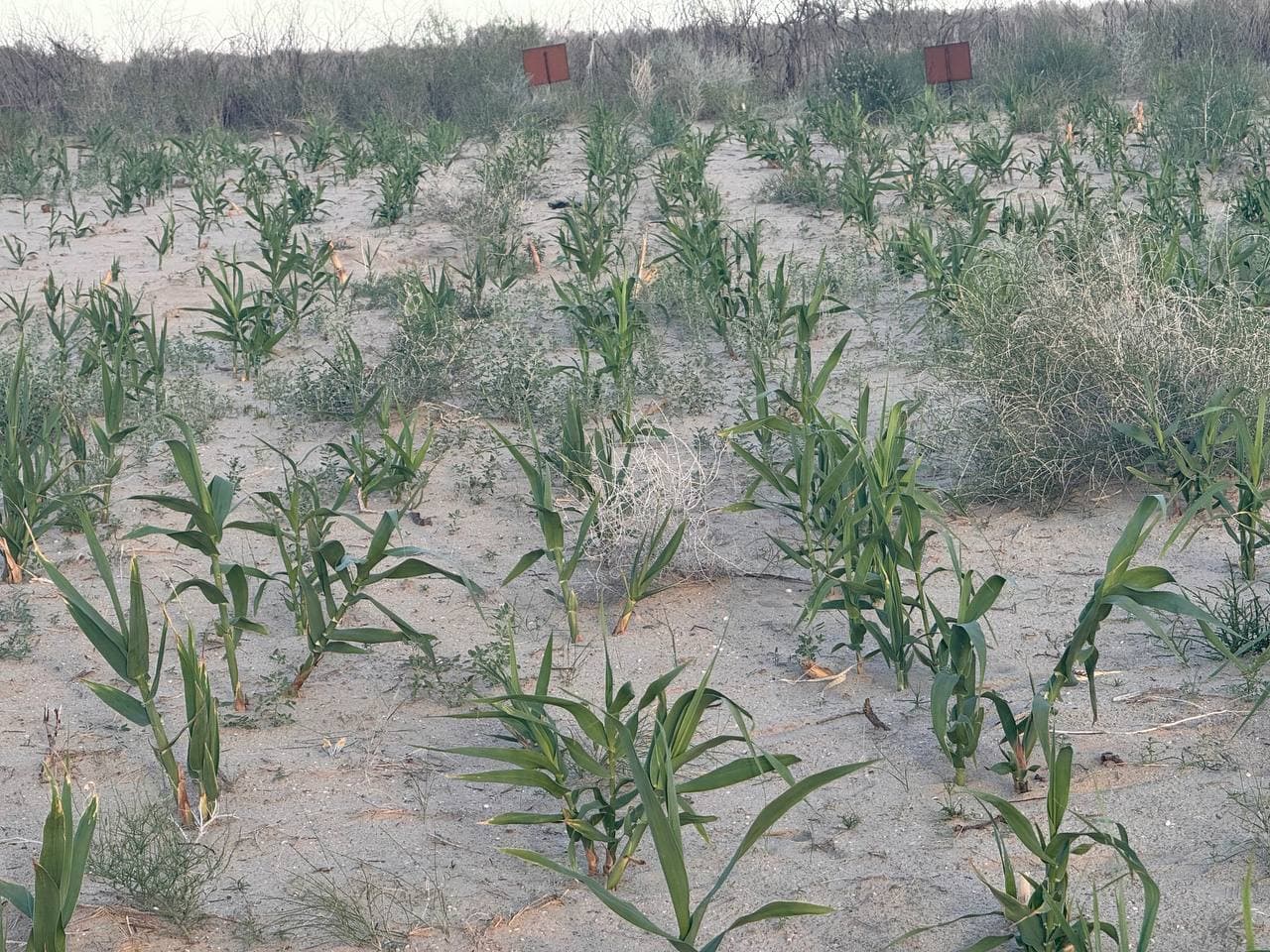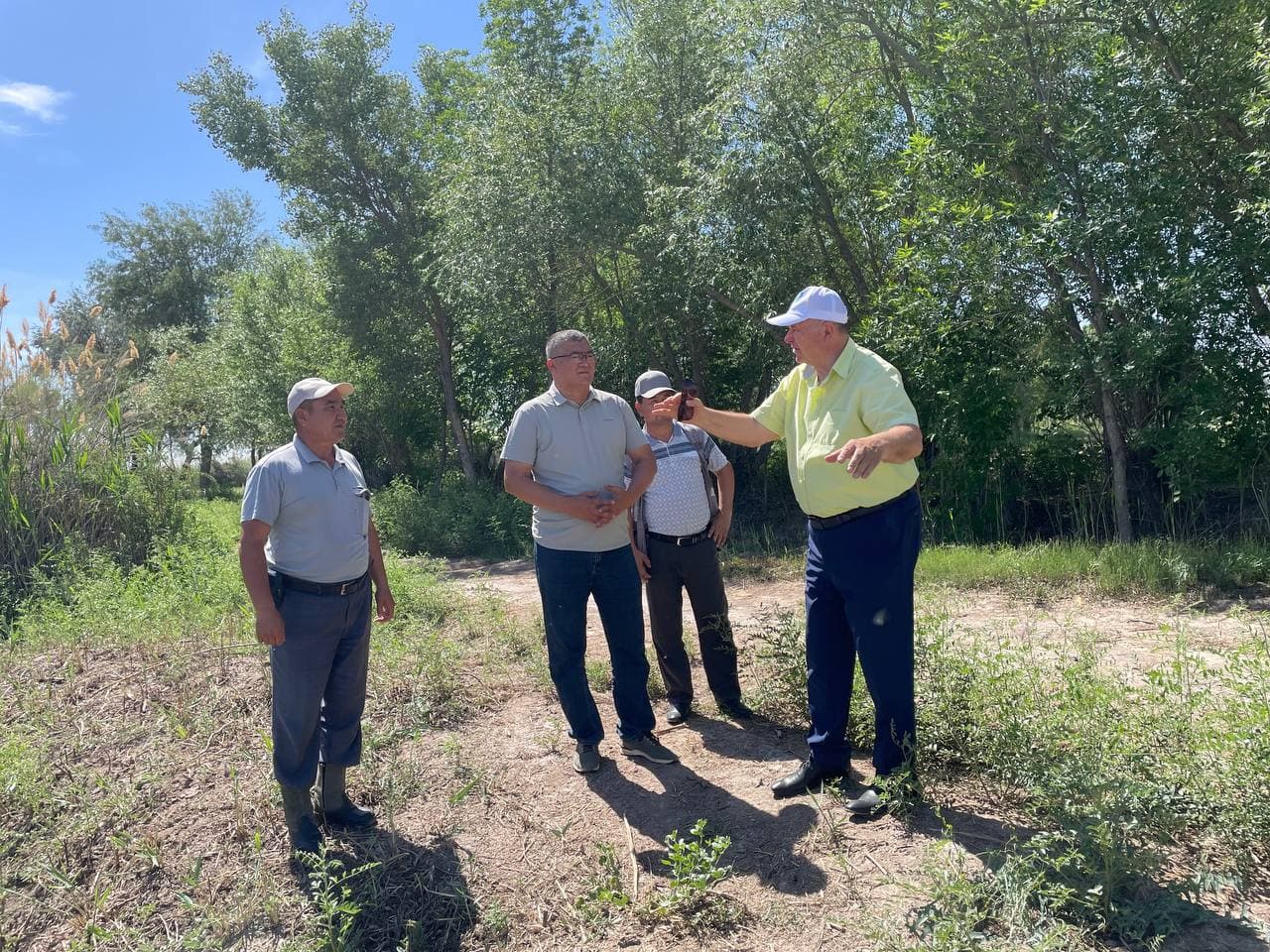Salt-tolerant plant successfully tested on the dried seabed of the Aral Sea
2025-05-15 16:00:00 / News
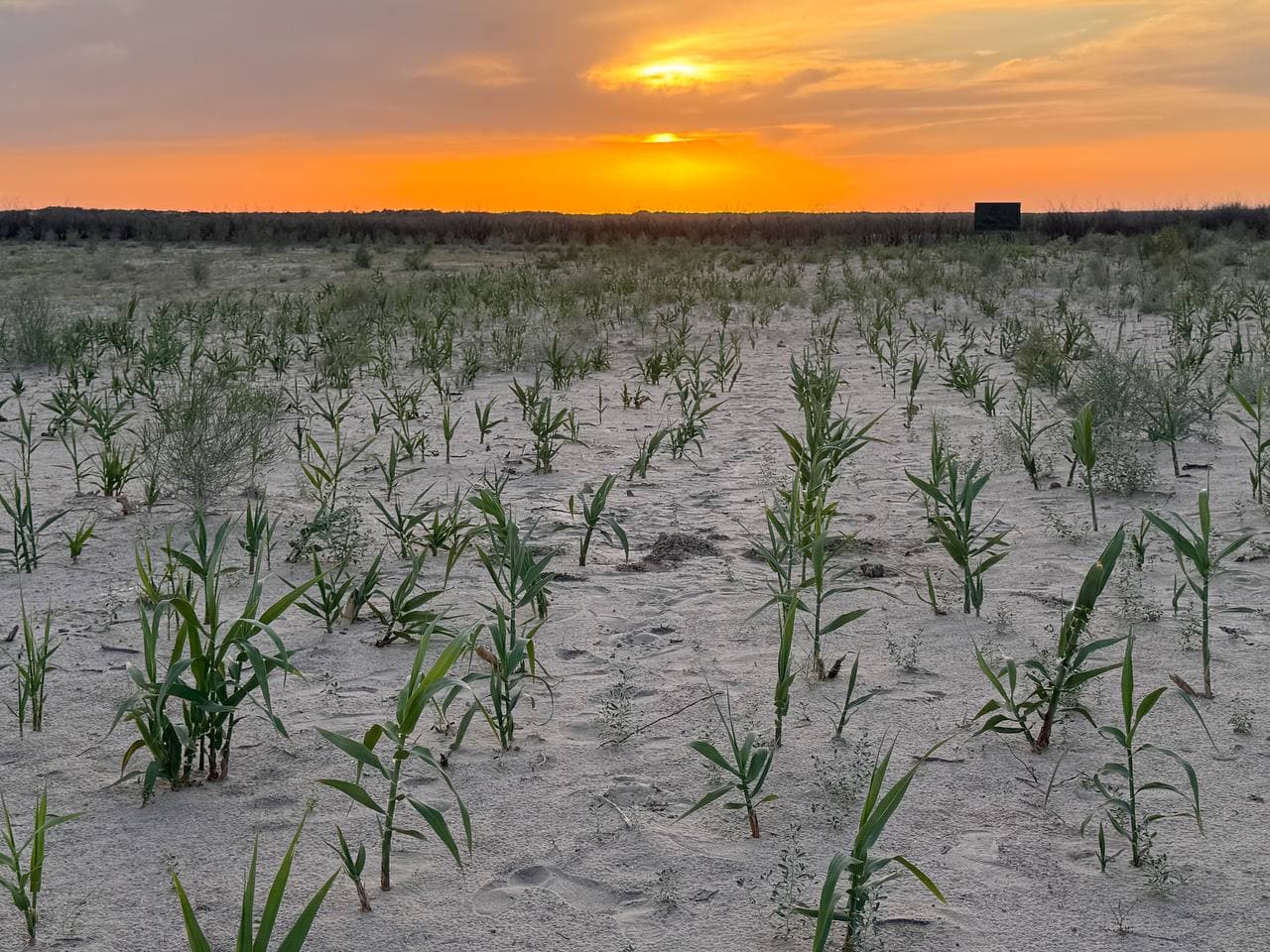
The main goal of the project is to identify plant species that demonstrate high resistance to salinity and can adapt to the extreme conditions that have developed on the former seabed.
One of the most promising species to show high survival rates is Arundo donax — a giant reed grass known for its ability to tolerate saline environments despite its natural preference for moist soils. During fieldwork, soil excavations revealed that groundwater in the study area lies at a depth of approximately 2 meters. Remarkably, within the first year of growth, the roots of Arundo donax reach this depth, enabling the plant to effectively access groundwater for continued growth and resilience.
"Our research team has developed a unique method to improve the survival of Arundo donax in saline conditions," shared Dr. Novitsky. "The method involves planting root shoots extracted from a depth of at least one meter from mature parent plants growing in areas with salinity levels similar to the Aral seabed. These shoots were brought from Urgench and Karakalpakstan. The results exceeded expectations — the survival rate of the plants was no less than 90%."
According to the scientist, this approach will continue to guide future plant adaptation efforts. The root system of Arundo donax demonstrates not only vertical growth (up to 1 meter or more in the first year), but also significant horizontal spread — up to 2 meters — which helps stabilize the soil and prevent further land degradation.
The trials offer new opportunities for the biological rehabilitation of the Aral Sea's dry seabed. The technique may serve as a foundation for large-scale greening efforts, dust storm mitigation and the restoration of regional ecosystems in the face of climate change and environmental degradation.

